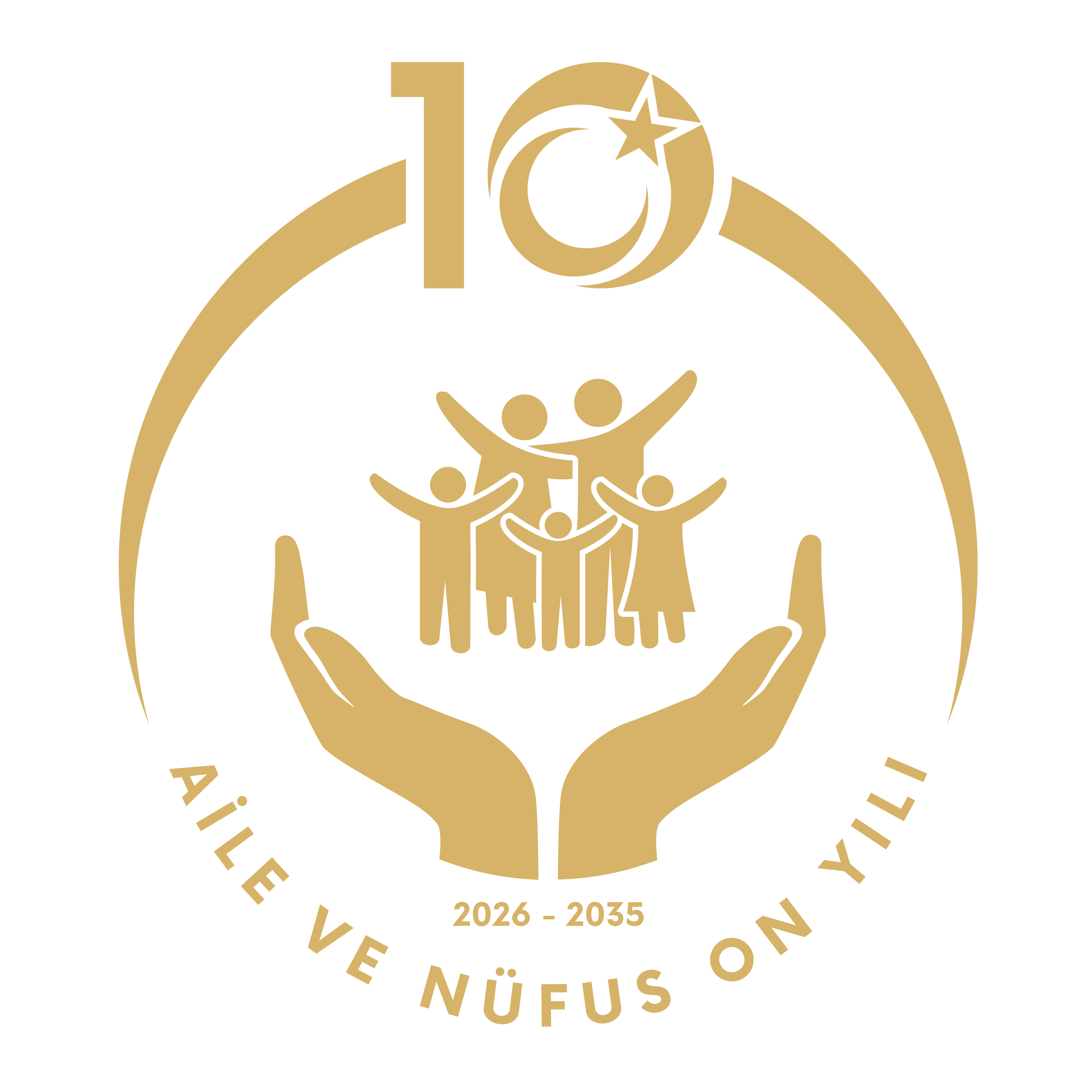
Our Minister of Family and Social Services, Derya Yanık, said, "We currently have 1894 children registered in the system. We delivered 1431 of them to their families. The number of children followed up at the hospital is 357, and the number of children we took into institutional care is 106. We identified 1808 of these 1894 children."
Minister Derya Yanık made evaluations about the agenda in the live broadcast of A News and answered the questions.
Indicating that the Ministry has two main responsibilities especially during disaster periods, Yanık said that one of them is psychosocial support services and the other is in-kind aids.
Yanık stated that the number of unaccompanied minors registered in their system is 1894 and said:
“By the child registered in our system, I mean as the Ministry of Family and Social Services, we created a database. A database where our Ministry of Health and other relevant stakeholders can enter the information of children under treatment in the hospital. Here, we have a system where we enter the photos of children, their distinctive features, birthmark, hair colour, eye colour, all the details of their body, or upload information that we scan in social media reports and so on. From here, we make the matches and save them here. Then, we make the identification by making matches within the framework of the information received.”
"We created a search screen for unaccompanied children"
Derya Yanık also said that they have created a search screen for unaccompanied children on the Ministry's website that citizens can also use.
Noting that it is much easier to identify children who can express themselves, and that they use all technical and scientific means, including DNA testing, for the identification of very young children, Yanık gave the following information:
“We currently have 1894 children registered in the system. We delivered 1431 of them to their families. The number of children followed up at the hospital is 357, and the number of children we take into institutional care is 106. We identified 1808 of these 1894 children. With each passing day, identification becomes easier, of course, as the data increases. Initially, the number of our unknown children was around 300-400. As of today, we will try to deliver them to their families after we identify their identities.”
Yanık said that thanks to the "deep vision" program developed and used together by TÜBİTAK, they matched 269 children, they ensured the communication of 49 children with their families, that 19 children were matched on the lists and that they were waiting for confirmation from the provincial directorates, and that 101 children died in these matches.
"About 860 thousand meetings were held with citizens in the earthquake"
Providing information on the psychosocial support activities carried out after the earthquake, Yanık said that they had made approximately 860 thousand interviews with the earthquake victims so far, with a total of 6 thousand 879 personnel, 3 thousand 326 in the earthquake area and 3 thousand 553 in the places where the earthquake victims were evacuated.
Yanık stated that as the Ministry, they declared the next two years as an acute disaster period and that they will continue their psychosocial support activities as if the earthquake happened yesterday.
Explaining the in-kind aids to the earthquake area, Yanık said that there are currently 4,990 personnel working actively in the warehouses, and that they reached the entire earthquake area with 953 vehicles.
Yanık stated that there are currently 68 warehouses in the earthquake zone and 17 warehouses they have established at the border gates for in-kind aid from abroad, and said, "As of today, we have 203 social markets. We have set up our social markets in earthquake zones, in tent cities, around them, in neighbourhoods, if any, in places where citizens can easily reach them."
"We distributed 38 million 500 thousand products in 62 items"
Explaining that they have created 5 mobile social markets for citizens in villages and rural areas, Yanık said:
“To date, we have unloaded aid materials in 13,867 truck warehouses. In this sense, I would like to express my sincere gratitude to our helpful citizens, to our citizens who sent these materials both from home and abroad, or to benevolent people. So far, we have distributed 2 million 660 thousand blankets in order to meet the needs of our citizens. 130 thousand beds, 220 thousand electric heaters, 1 million 610 thousand food parcels. This is just what we distribute from our repositories. I am not talking about the food support provided by other institutions and organizations. We have distributed 38 million 500 thousand products in 62 similar items.”
Minister Yanık emphasizing that they provided not only in-kind aid but also cash aid to the disaster-affected regions said that they sent 271 million liras to 10 provinces and 2 districts in the first place, then they sent an additional 225 million liras periodic share, and that they would provide funds to foundations to meet the needs of earthquake victims in the following period.
Underlining that citizens in need must have a residence in that place in order to receive aid from social assistance and solidarity foundations, Yanık said that they have lifted the residence requirement for earthquake-affected citizens.
Studies for disadvantaged groups
Minister Derya Yanık said that they evacuated 533 older persons and 1133 persons with disabilities, whom they hosted in the institutions in the earthquake area, to safe places immediately after the earthquake, and that they later took 206 older persons and 546 citizens with disabilities, who were sheltered in tents and who were in need of care, to institutions in different provinces.
Indicating that psychosocial support teams carry out regular screenings in tent cities, Yanık stated that they take citizens, children or older persons, whom they detect in need of care, under institutional care.
Yanık stated that they followed the process with 110 volunteer sign language interpreters for citizens with hearing impairment, and they did the necessary work for each disadvantaged group.
Noting that it is not easy to live in a tent city, Yanık said, “However, our citizens should be sure that as all institutions and organizations, we are on full alert to ensure that all kinds of needs are met, from the security of tent cities to health support, from social services to other in-kind supports.”
Minister Yanık added that besides the social markets, there are also special social market tents where hygiene and special needs materials can be obtained for women and children, they have set up social support tents for children, and they have started to open workshops for women.








